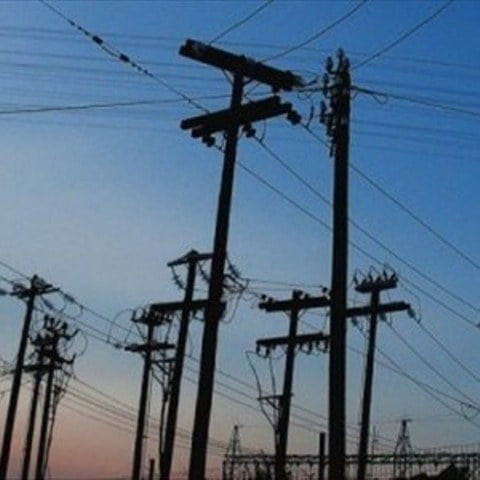Power dispute: Govt demands K-Electric stop using NTDC power
Utility firm being asked to stop using 650MW of grid power

PHOTO: AFP
The standoff between K-Electric and the water and power ministry continued on Tuesday as the ministry said it had demanded that the privately-owned utility company start utilising the full capacity of its power plants, but stopped short of threatening to cut off power supply from the national grid to the country’s financial capital.
At a hearing of the National Assembly Water and Power Committee, Yunus Dhaga, the water and power secretary, said that the state-owned National Transmission and Dispatch Company (NTDC) has sent a letter to the Abraaj Capital-owned K-Electric asking them to utilise their own power generation capacity after the agreement between K-Electric and NTDC for the latter to supply 650 MW to Karachi had expired on January 26.

“K-Electric can generate 2,000 to 2,500 MW of electricity with its own power generation plants. Despite the expiration of NTDC’s agreement with K-Electric, electricity is being supplied to the company,” said Dhaga, adding that power shutdowns in Karachi could end if K-Electric runs its own power plants at full capacity. He said that the power currently being supplied to Karachi can then be supplied to other parts of the country.
“If K-Electric generates electricity as per full capacity of its power plants, then residents of Karachi and industries of the city will not face power outages as there will be no power load shedding,” said Dhaga, adding that negotiations between the ministry and the company are ongoing.
K-Electric management has, in the past, stated that it is unable to run many of its power plants due to the fact that the state-owned Sui Southern Gas Company does not supply K-Electric’s generating stations with the full amount of gas it needs in order to generate electricity at cheap rates. Instead of supplying the utility which serves the entire city, the government’s policy has been to divert some of the gas needed by K-Electric to the captive power generation units at large industrial units across the city, mostly in textile, though some also in the chemical industries.
Yet even while the government insists that K-Electric run those power plants with expensive furnace oil as fuel rather than cheap natural gas, the government’s own thermal power plants – which collectively have the capacity to produce 6,378 MW of electricity – are being kept completely offline for the exact same reason: the government is diverting the gas they need to produce electricity cheaply to textile companies, and refusing to use furnace oil as an alternative fuel because that would mean that the cost of producing electricity would be too high.
In his testimony before the committee on Tuesday, Dhaga said that the country currently faces a gap of approximately 5,000 MW between demand and supply of electricity, but made no reference to the more than 6,300 MW of state-owned power generation capacity being kept offline, instead diverting attention to the 650 MW of electricity being supplied to Karachi.
The secretary said that the country needs to add an additional 8,500 MW of power generation capacity by 2017 to overcome the chronic power cuts that last for several hours a day in nearly all parts of the country. The government is seeking to add at least some of that capacity through state-owned power companies. Dhaga said that testing on two units of the Nandipur power project was under way and when they achieve full production, they will add 200 MW to the national grid in May, with another 200 MW to follow in the following month.
Committee chairman Arshad Khan Laghari, a PML-N MNA from Rahimyar Khan, expressed concern over the delays on the government’s power production projections, saying that such delays cause an additional burden on taxpayers.
Published in The Express Tribune, February 4th, 2015.


















COMMENTS
Comments are moderated and generally will be posted if they are on-topic and not abusive.
For more information, please see our Comments FAQ